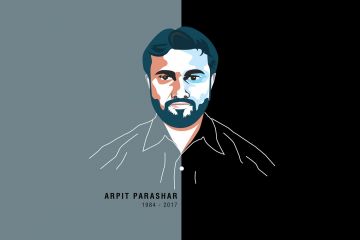
Universally, the chief
indulgences of adolescence are cigarettes, sexual fantasies, atheism, the
Russian nihilists, alcohol, marijuana, and ennui, usually discovered in that
order. I have often cursed god for denying me its main luxury and arguably
longest hangover—atheism.
To the Western mind,
familiar with The Beatles, Osho and Steve Jobs, Indian spirituality is synonymous
with sex and narcotics. Sadly, the truth (in lower case) is less exciting.
Religion makes the headlines in Indi





